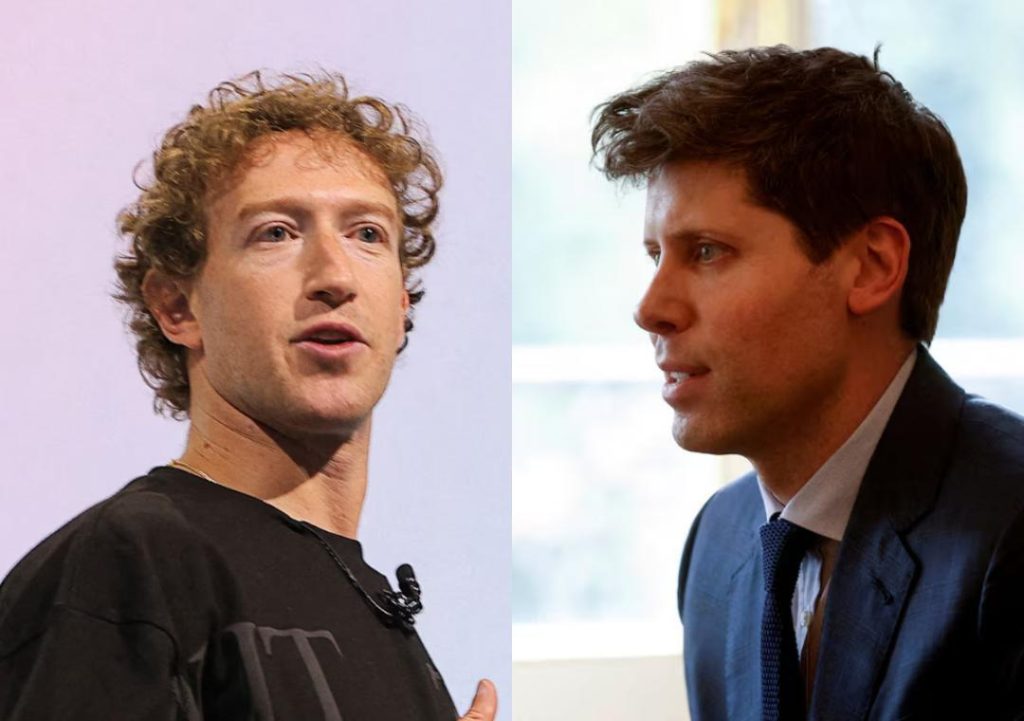
Who are the employees which Meta poached from OpenAI for its Superintelligence Labs?
In a significant move, Meta, the parent company of Facebook, Instagram, and WhatsApp, has poached a team of top researchers from OpenAI, a leading artificial intelligence (AI) research organization, to join its Superintelligence Labs. The team, comprising some of the most brilliant minds in AI, has been instrumental in developing several groundbreaking AI models, including the popular ChatGPT.
Among the OpenAI employees who have made the switch to Meta are Trapit Bansal, the Indian-origin co-creator of OpenAI’s o-series chatbots, and Shuchao Bi, co-creator of GPT-4o voice mode. Huiwen Chang, co-creator of GPT-4o’s image generation, Ji Lin, who helped build o3/o4-mini, and Hongyu Ren, co-creator of GPT-4o, have also joined Meta’s Superintelligence Labs. Additionally, Shengjia Zhao, co-creator of ChatGPT, has also made the move to Meta.
The news was first reported by Indian Express, which obtained the list of researchers who have joined Meta’s AI dream team. The list includes several other researchers from OpenAI, as well as Google and DeepMind, another leading AI research organization.
Trapit Bansal, an Indian-origin researcher, is perhaps best known for his work on OpenAI’s o-series chatbots, which have been trained on massive datasets to engage in natural-sounding conversations with humans. Bansal has a Ph.D. in Computer Science from Stanford University and has worked at OpenAI since 2018.
Shuchao Bi, another OpenAI researcher, is a co-creator of GPT-4o voice mode, a language model that can generate human-like speech. Bi has a Ph.D. in Electrical Engineering from Stanford University and has been working at OpenAI since 2020.
Huiwen Chang, co-creator of GPT-4o’s image generation capabilities, has a Ph.D. in Computer Science from University of California, Berkeley. Chang has been working at OpenAI since 2019 and has made significant contributions to the development of GPT-4o, which has the ability to generate high-quality images.
Ji Lin, who helped build o3/o4-mini, a miniature version of OpenAI’s GPT-4o model, has a Ph.D. in Computer Science from University of California, Los Angeles. Lin has been working at OpenAI since 2018 and has worked on several AI models, including the popular DALL-E and DALL-E mini.
Hongyu Ren, co-creator of GPT-4o, has a Ph.D. in Computer Science from University of California, San Diego. Ren has been working at OpenAI since 2020 and has made significant contributions to the development of GPT-4o, which has the ability to generate human-like text.
Shengjia Zhao, co-creator of ChatGPT, has a Ph.D. in Computer Science from University of California, Berkeley. Zhao has been working at OpenAI since 2020 and has made significant contributions to the development of ChatGPT, which has the ability to engage in natural-sounding conversations with humans.
The poaching of top researchers from OpenAI by Meta is a significant development in the world of AI research. OpenAI is a non-profit research organization that has made significant contributions to the development of AI, including the development of GPT-3, a large language model that has been trained on a massive dataset of text.
Meta’s Superintelligence Labs is focused on developing AI models that are capable of human-like intelligence. The lab is led by Dr. Jason Weston, a well-known AI researcher who has worked at several top AI research organizations, including Google and Facebook.
The poaching of top researchers from OpenAI by Meta is a significant blow to OpenAI, which has been struggling to retain its top talent. OpenAI has been facing increased competition from other AI research organizations, including Meta, which has been investing heavily in AI research.
In a statement, Meta said that it is committed to advancing the field of AI and has been working with top researchers from around the world to develop AI models that are capable of human-like intelligence. “We are excited to welcome these talented researchers to our team and look forward to working with them to advance the field of AI,” said a Meta spokesperson.
The poaching of top researchers from OpenAI by Meta is a significant development in the world of AI research and highlights the intense competition for top talent in the field. As AI continues to evolve and become increasingly integrated into our daily lives, the development of more advanced AI models is likely to play a critical role in shaping the future of technology.
Source:





